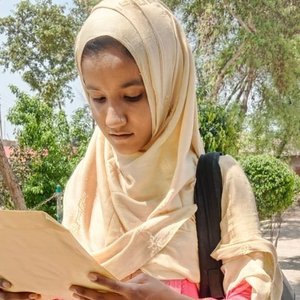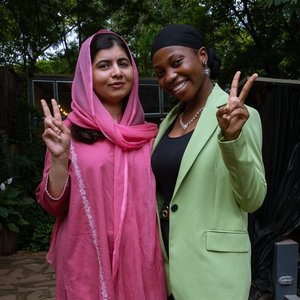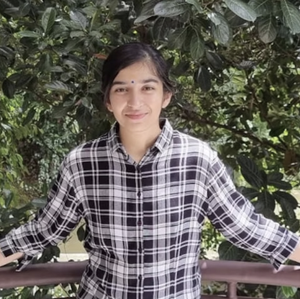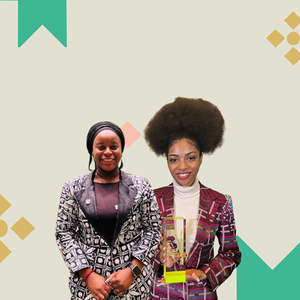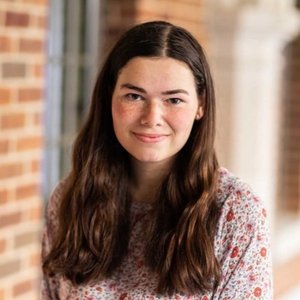A week in the life of a 17-year-old assisting human rights research at Stanford University
“At the end of the day, the passion and gratitude I feel working as a human rights research intern hasn’t faded a bit…I know that I still need to keep working [on my memo], but I’m proud of it so far, and even prouder that the work I’m contributing to may make a real difference.” (Photo courtesy of Leela Hensler)
17-year-old Leela Hensler documents how she balances taking care of her mental health with her passion for human rights research which can, at times, be disheartening and difficult to do.
Monday
I’m trying to get my body to adjust back to my irritatingly early school schedule, so I’m up at 7:30 AM today! Even though I try to ignore my alarm, eventually I drag myself out of bed and get ready for the day, enjoying a quick breakfast of cornflakes, and checking my email while I eat. One of the Clinical Supervising Attorneys at the International Human Rights and Conflict Resolution Clinic (IHRCRC) has emailed — letting me know that there have been new developments in a key conflict region that need to be added to the timeline I created about it — so after breakfast, around 9 AM I head to my desk and get started. I added a section on new conflicts in the region and spend the next few hours creating a mini-timeline on an ongoing issue.
Putting on my favorite upbeat playlist (filled with Taylor Swift, Normani, MARINA, and Rina Sawayama, of course) and listening to light and funny podcasts like Office Ladies or How Did This Get Made? helps take my mind off of my work, and by the time it’s 12:30 PM I’m finished with the new section, but tired from reading article after article about military, religious, or government leaders all insisting that their actions are justified while the civilians suffer the consequences of ongoing war.
My mom and sister are going to get lunch at our favorite Korean restaurant so I tag along. When we return, I feel refreshed and ready to get started on my main project for this week: creating a memo on the implications of anti-LGBTQ+ laws in different countries for sexual orientation and gender (or SOGI) rights. Since it’s my first day working on this issue, I read the resources that were initially sent over to get an understanding of the overall situation and prepare for a more intensive deep dive tomorrow. I finish up at around 5:30 PM, and stir-fry my Korean leftovers for dinner at 7:30 PM, before watching New Girl (one of my favorite sitcoms of all time) with my sister until it’s time to start getting ready for bed at 10:30 PM.
Tuesday
I wake up at 8:00 AM to an email reminder that tomorrow will be the last time I’ll ever be returning books and picking up my class schedule… because my senior year of high school starts in a week! Before going to make myself some breakfast, I double-check to be sure that my copy of The Crucible is safely stashed in my tote bag, ready to be dropped off on Wednesday.
Work starts at 9:30 for me today, and I’m back online again, trying to find key events involving LGBTQ+ rights and setbacks related to the recent increase in severe anti-homosexuality laws that are being passed and/or newly enforced in countries around the world. While different tasks require different approaches to research, for this memo, my research begins with a simple Google search to get a general sense of how much information is available on a particular event. From there, I may use a country’s judicial database to find case documents, look through reports produced by international legal monitoring organizations, or read news articles on the event to pin down more specific details, saving the links for future citations as I go.
As a researcher, I’ve had the opportunity to focus on a wide range of human rights issues globally, but there’s never been a topic that was “easy” to study. There are many different mechanisms in place to fight for human rights, yet so much of my research has consisted of reading from the victims of horrific human rights abuses — from the families of assassinated journalists to the testimony of those victimized by homophobic violence — and then remembering that the reports won’t always result in true accountability.
Then, there are days when I spend my time reading through pages and pages of justification for some of the most dehumanizing acts I’ve ever heard of. Tuesday happens to be one of those days. Compiling information on the prior treatment of LGBTQ+ communities in certain countries means combing through the most hateful statements and articles from governments and tabloids, including some that out gay people and call for their deaths. Taking notes on these documents until 6:00 PM without permanently injuring my jaw (from gritting my teeth in anger and sadness) is made possible only with the addition of frequent Taylor Swift listening breaks and a very large bag of chivda from my grandparents in Mumbai.
Wednesday
On the day of my last high school orientation (even though there’s not much left to get oriented to after three years), I’m up at 9:00 AM, with what I thought was plenty of time to get ready for orientation at 11:00 AM — only to check my calendar and realize that I completely forgot that it’s 11th grade orientation then, and I was supposed to be at school half an hour ago! Feeling very grateful that this is the one year where I’ll have a senior portrait instead of just an ID card photo in our yearbook, I practically sprint out the door, only stopping to make sure I grabbed the bag with my copy of The Crucible from AP English Language and Composition last year. Otherwise, I might not be able to get my schedule.
Thankfully, all goes well. With my new ID card in hand, my book safely returned and my schedule (with all of the classes I wanted!) secured in my bag, I decided to grab a coffee as a reward for managing to make it in and out of orientation in less than 90 minutes.
(Photo courtesy of Leela Hensler)
Back at home, I get to work at around 12:00 PM and continue working (with only a few snack breaks) until dinner at 6:30 PM. This time, I spent the afternoon looking through legal victories for LGBTQ+ people, including when anti-LGBTQ laws were overturned on constitutional grounds. These kinds of court cases can be bittersweet to read through, but this time I feel more hopeful because similar victories might be possible today.
Thursday
I start my day off by going for a walk with my dog, Zack. A wheaten terrier-poodle mix who we adopted when I was 10, his attempts to act like a puppy despite being almost nine years old always make me smile. We head to Flowerland, a plant nursery with a coffee shop attached, where Zack wastes no time claiming a chair to sunbathe in while I sit next to him, eating one of their delicious mochi muffins and making a to-do list in my new planner.
My favorite fluffy boy relaxing amongst the flowers! (Photo courtesy of Leela Hensler)
“It’s important to get used to days when I have to sift through pages of rhetoric that make my stomach churn, but for the LGBTQ+ community in the countries I’m researching, this is their reality. But my research can play a role, however small, in helping defend human rights.”
After arriving home at 10:30 AM, I go through news articles and reports, researching how other countries and major international organizations (such as the UN or the World Bank) have reacted to the passage of legislation criminalizing the LGBTQ+ community this year. I take a lunch break at around 2:00 PM and spend some time on my New Girl rewatch before getting back to work.
I definitely feel better about my work today, but I also know that it’s important to get used to days like Tuesday, when I have to sift through pages of rhetoric that make my stomach churn. It makes me feel queasy, but it’s also just a click away from being closed on my computer. For the LGBTQ+ community in the countries I’m looking at, this is their reality.
The research I do can play a role, however small, in helping defend their human rights. This makes me stress over what details to include in this memo. So, I write and re-write sections to ensure they’re as helpful as possible. All this laser-focused work makes looking at a completed section, well worth it when I finally turn off my laptop at 8 PM.
Friday
Getting up at 8 AM again, I hurry to start work at around 9 because I know that my afternoon will be disrupted with the addition of a very special houseguest: our dog Zack’s friend, Fritz! My family has been friends with his owners even before they adopted him, and we regularly dogsit for each other.
I also have a difficult assignment today: adding citations in the daunting Bluebook format — something even law students find difficult. I quickly learned that citing with Bluebook is no joke. Just trying to cite the sources I’ve found this week is a long process, and after finding free guides for it online, I feel especially grateful for the internet’s existence.
However, Fritz’s arrival at 1 PM is an adorable interlude after spending hours looking up “international legal documents Bluebook format” and only finding a confusing mishmash of protocols, none of which apply to the countries I’m researching. He and Zack chase each other around far too quickly for me to even try to play with them, but I rest my eyes in the sun and take a lunch break in my backyard — even receiving some snuggles when they get too tired to keep chasing each other.
(Photo courtesy of Leela Hensler)
I get back to work at around 2:30 PM, and make small progress on sections abouts historical background and legal victories during the evening, but the majority of my time is spent focusing on my citations. I’m not remotely close to being a lawyer yet, but this is definitely a good test of my interest in legal work — and despite Bluebook’s frustrating qualities — at the end of the day I’m glad that I have my passion for this work. The gratitude I feel working as a human rights research intern hasn’t faded a bit! Shutting off my laptop and heading to bed at 10:30, I know that I still need to keep working on my memo, but I’m proud of it so far, and even prouder that the work I’m contributing to may make a real difference.
 Read more
Read more










